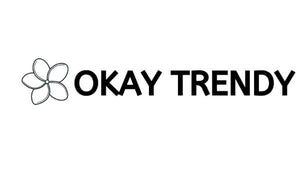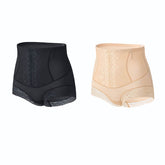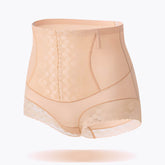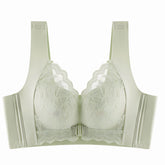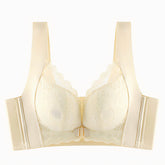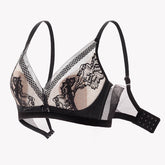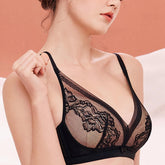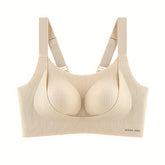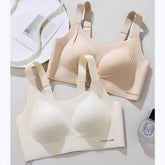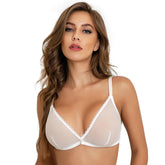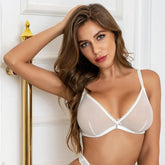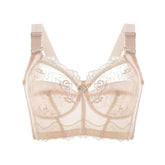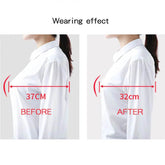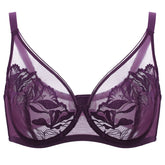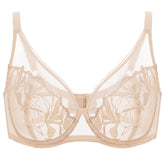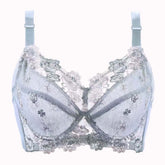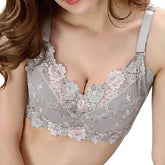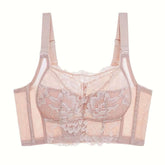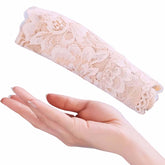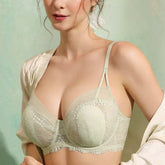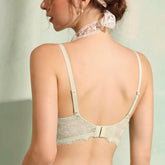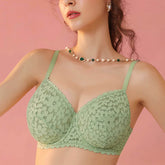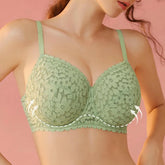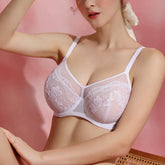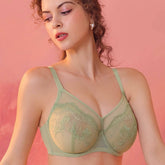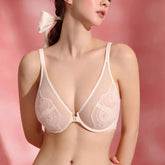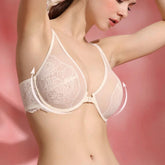How Big Are D Cup Breasts? A Comprehensive Guide

Breast size has always been a topic of interest, curiosity, and sometimes controversy. D cup size is a common size that many women aspire to have, while others struggle with. In this article, we will explore what D cup size is, how it compares to other cup sizes, what bras to wear, and how to ensure a perfect fit.
How Big Are D Cups? What is a D Cup Size?
First and foremost, it is important to understand that cup size is not an absolute measurement, but rather a relative one that depends on the band size. A D cup on a 32 band size is smaller than a D cup on a 38 band size. Therefore, a D cup size alone does not provide an accurate measurement of breast size.
To understand what a D cup size looks like, we need to consider the band size as well. Generally, a D cup size is considered to be a medium to large size, with a fullness that fills the cup. However, the exact size can vary based on the brand, style, and individual fit. In general, a D cup size is typically considered to be around 4 inches larger than the band size.
Comparing D, DD, and DDD Cups
The D cup size is just one of the many sizes available, and it is important to understand how it compares to other sizes, such as DD and DDD. A DD cup size is one size larger than a D cup, while a DDD cup size is two sizes larger than a D cup.
It is worth noting that some brands use E instead of DDD, and some use FF instead of DDD. In some countries, such as France, the sizes are labeled differently as well. It is important to understand the sizing system used by the brand you are purchasing from to ensure a proper fit.
What Bras Should You Wear as a D Cup?
Choosing the right bra can make a significant difference in how your breasts look and feel. As a D cup, it is important to choose a bra that offers adequate support and coverage.
A full-coverage bra is a great option for those with D cups, as it provides support for the entire breast, minimizing bouncing and providing a natural, rounded shape. A wireless bra can also be a good option, as it provides comfort and support without the constraints of underwire.
It is important to choose a bra that fits properly, with no bulging or gaping. The band should fit snugly, but not be too tight, and the straps should be adjusted to provide support without digging into the shoulders.
How Should a D Bra Fit?
A well-fitting bra is crucial for comfort, support, and a flattering shape. When trying on bras, it is important to ensure that the band size is snug, but not too tight, and that the cups provide full coverage with no bulging or gaping.
The straps should be adjusted to provide support without digging into the shoulders, and the band should be parallel to the ground, without riding up or down. A good rule of thumb is to be able to fit two fingers comfortably between the band and the skin.
Are D Cup Breasts Heavy?
Breast weight can vary greatly based on individual factors, such as body type, breast density, and overall health. Generally, larger cup sizes, such as D cups, can be heavier than smaller cup sizes.
However, it is important to note that breast weight is not solely determined by cup size, but rather by the amount of breast tissue present. Breast tissue is composed of glandular tissue, which produces milk, and fatty tissue, which provides shape and support. Therefore, breast weight can vary greatly even among individuals with the same cup size.
Is an A or D Cup Bigger?
It is important to understand that cup size is relative to the band size, and therefore, an A cup on a larger band size may be bigger than a D cup on a smaller band size. Generally, larger cup sizes indicate a larger volume of breast tissue, but it is important to consider the band size as well for an accurate measurement.
How Will I Know if I Have D Cup Boobs?
Determining your bra size can be a bit of a challenge, but there are a few ways to get an idea of your cup size. The most accurate way to determine your size is to get a professional fitting at a lingerie store, but if that is not possible, you can try measuring yourself at home.
To measure your band size, wrap a tape measure snugly around your ribcage, just under your bust. The measurement in inches will be your band size. To measure your cup size, measure around the fullest part of your bust, and subtract your band measurement from this number. The difference will give you an idea of your cup size, with each inch representing a different cup size.
For example, if your band measurement is 34 inches, and your bust measurement is 38 inches, the difference is 4 inches, indicating a D cup size. However, it is important to note that this is just a rough estimate, and getting a professional fitting is the best way to ensure a perfect fit.
Conclusion
D cup size is a common size that many women aspire to have, and it is important to understand what it means and how it compares to other sizes. Choosing the right bra and ensuring a proper fit is crucial for comfort, support, and a flattering shape. Remember, every body is unique, and there is no one-size-fits-all approach to bra sizing. Experiment with different styles and brands to find what works best for you.
FAQs
What is the average breast size for women?
The average breast size varies based on a variety of factors, such as age, ethnicity, and geographic location. In the United States, the average bra size is around a 36DD.
Are D cups considered large?
D cups are generally considered to be medium to large size, but it is important to consider the band size as well for an accurate measurement.
How often should I get a bra fitting?
It is recommended to get a bra fitting at least once a year, as breast size and shape can change over time due to weight fluctuations, hormonal changes, and aging.
Can breast size be changed naturally?
While there is no guaranteed way to change breast size naturally, factors such as exercise, diet, and hormonal changes can have an impact on breast size.
Can wearing the wrong bra size be harmful?
Wearing the wrong bra size can lead to discomfort, back pain, and even breast tissue damage over time. It is important to ensure a proper fit for both comfort and health.
